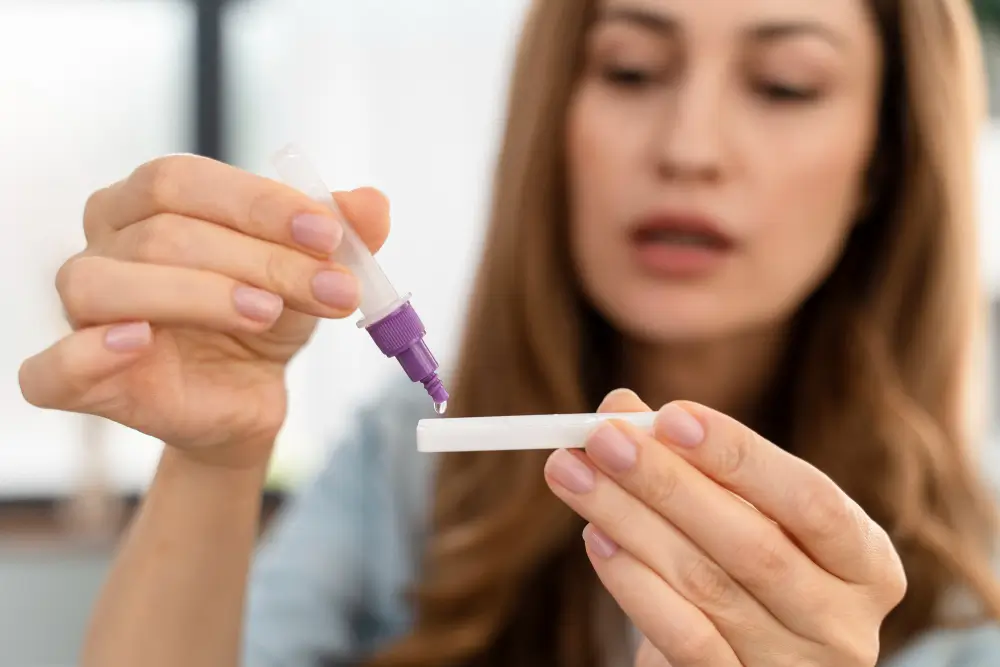Ever heard of “marijuana lite” or “diet weed”? Those are common names for Delta-8 THC. It’s the latest cannabis-derived drug to hit the streets in the past few years. However, it has not been FDA-approved for safe use. It may be marketed in ways that put the public at risk. In this article I look at what it is, its addictive properties and withdrawal symptoms.

What Is Delta-8?
Delta-8 THC (delta-8 tetrahydrocannabinol) is a naturally occurring psychoactive compound (a cannabinoid). It’s found in trace amounts in the Cannabis sativa plant, of which hemp and marijuana are two varieties. Delta-8 is one of more than 100 chemical compounds found naturally in both plants.
Although it is often marketed as “hemp”, Delta-8 is made synthetically from CBD and hemp in labs and in concentrated amounts. As a result, many CBD and Delta-8 products have much higher levels of the Delta-8 compound than what occurs naturally.
In the past few years since the passage of the 2018 Farm Bill, Delta-8 has appeared widely available. It’s a hemp-based legal loophole alternative to illegal marijuana to get high. In some states, but not all, it’s easy to legally buy Delta-8 online, in convenience stores, gas stations, and head shops.
Delta-8 can be bought in many forms, including:
- Gummies
- Vapes
- Joints
- Tinctures
- Brownies
- Treats
- Capsules
- Creams
- Cartridges (“carts”)
- Raw flower extracts on which Delta-8 is sprayed
This availability makes it easy for adolescents to buy and use, a deeply concerning issue as it may be a gateway to more addictive drugs.
Some of the side effects include:
- Drowsiness
- Dizziness
- Both slow or fast heart rate
- Anxiety
- Confusion
- Tremors
- Vomiting
- Hallucinations or psychosis
The natural amount of Delta-8 THC in hemp is very low. So additional chemicals are needed to convert other cannabinoids in hemp, like CBD, into Delta-8 THC (i.e., synthetic conversion). These may include unsafe household chemicals, pesticides and petroleum as well as contaminants from unsanitary labs.
To date, there is no FDA-approval of the efficacy or safety of Delta-8 THC for therapeutic use. In fact thousands of calls have been placed in the past few years to poison control centers and emergency rooms across the US from its side effects, some from children.
Is It Possible to Get Addicted to Delta-8?
With its fuzzy, euphoric high, Delta-8 is said to be similar to marijuana (Delta-9 THC). But it’s much less intense and usually without feelings of anxiety or paranoia. People who use it report a calm, relaxed happy feeling. Although some use it to alleviate symptoms of anxiety, depression, stress and chronic pain, there is almost no research to confirm its effectiveness.
Since there has been such little research into Delta-8 THC, scientists don’t yet know.
What the long-term effects could be. But they may be presumed to be somewhat similar to Delta-9 THC, the main compound in cannabis responsible for the “high”—slower cognitive processing, memory and retention issues being among them. There could also be negative side effects from the additives used to synthesize Delta-8 THC.
And “yes” you could get addicted to Delta-8 if you build tolerance to it through regular use, as with any psychoactive drug that alters brain chemistry. This is especially the case if you consume Delta-8 in concentrated form.

Signs of Delta-8 Addiction
Delta-8 is less potent than Delta-9, and is legal in some states where Delta-9 is not. So some mistakenly believe that Delta-8 has no risk of addiction. Certainly compared to methamphetamines, cocaine or opioids, the risk is much lower. However, for some people it is still a real possibility, partly depending on genetics and environmental factors.
Addiction to Delta-8 is not well researched yet. Like marijuana, it affects the endocannabinoid system in the brain, causing the body to minimize the sensitivity of CB1 receptors. Regular use may potentially trigger addictive behaviors. This is particularly so for people prone to substance misuse.
Some signs of Delta-8 addiction include
- Consuming higher levels of the product to achieve desired effects
- Isolation from friends and family and their complaints about your use
- Being unable to function without it
- Preoccupation with thinking about accessing and using the drug
- Consuming the substance to hold off withdrawal
- Lack of responsibility in your personal and work life
- Losing control of your use; failing to quit when tried
Some marketers of Delta-8 advocate users take “tolerance breaks” or “T-breaks” for several days to two weeks, to not develop tolerance.
Delta-8 does pose a risk as a pathway from tolerance to dependence and addiction.
Delta-8 Withdrawal Symptoms
Typically the withdrawal symptoms are quite mild, depending on how much use of Delta-8 you have been using. If there is a physical dependence, withdrawal may lead to strong cravings, sleeplessness, irritability, anxiety and loss of appetite. Generally they only last under a week with further tapering of symptoms over the next few weeks.
Compared to withdrawal from meth, benzos or opioids, the symptoms aren’t as severe. But that doesn’t mean it’s easy to withdraw. This is especially so if you try to quit on your own without proper support.
Medical Detox Help Is Available
Participating in a medical detox program is the safest, most comfortable and reliable way to cleanse from Delta-8. After detoxing, you may enter a residential treatment center such as we have at The Encino Recovery & Detox Center. Trained staff are equipped to offer clinical care. They will provide the support, guidance and therapy necessary for you to reach your treatment goals. Participating in residential care greatly enhances your success rate at avoiding relapses.
Sources
Srinivas S. 2023. Delta-8 THC: What You Need to Know About This Cannabinoid. Webmd.
Schreyer L. Buyer Beware: Delta-8 is the ‘Russian Roulette’ of Cannabis. Webmd.
US Food and Drug Administration (FDA). 2022. 5 Things to Know about Delta-8 Tetrahydrocannabinol – Delta-8 THC


















